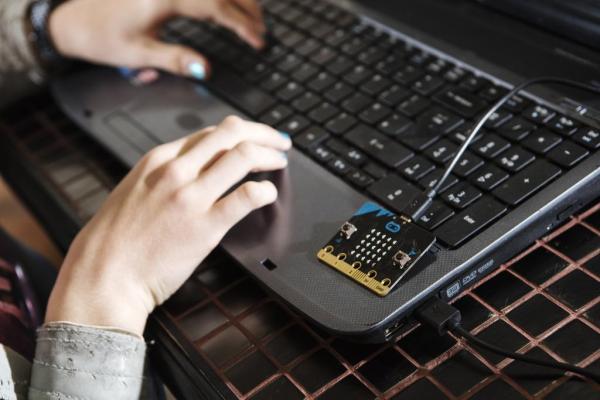A tiny programmable board designed as part of an educational initiative for UK kids to learn programming skills and originally distributed by the public service broadcaster, the BBC, to one million schoolchildren is now up for public pre-order.
The micro:bit is available for public pre-order in the UK, via Element14’s website, with delivery slated for July. Although at this point it’s being sold in minimum quantities of 90 for resellers (such as Microsoft) to then sell on to individuals. So consumers will have a bit longer to wait to be able to buy a device just for themselves.
Prices start at £12.99 for a single BBC micro:bit; £14.99 for a starter kit which includes a BBC micro:bit, mini USB, battery pack and four project ideas; and £140 for a ‘BBC micro:bit Club’ pack, which includes 10 devices and “everything needed to get a coding club started”.
The intention with the micro:bit project — part of the BBC’s wider ‘Make it Digital’ initiative to inspire “a new generation to get creative with coding, programming and digital technology” — was always to open up the distribution of the device after the initial giveaway.
The hardware includes various programmable sensors, Bluetooth connectivity and a selection of input and output rings to link to other devices and sensors. On the software side, there’s a companion website hosting multiple code editors and tutorials.
The micro:bit follows in the footsteps of another UK low-cost learn-to-code micro computer, the Raspberry Pi, but the aim was to create a learning device that is rather simpler to get started with for a target (younger) age-group of year 7 pupils (aged 11 and up).
While the Pi has been hugely successful, selling more than eight million units cumulatively since its 2012 release, its primary user-base has tended to be a maker community of adults, rather than schoolkids. Hence the BBC seeing room to make its micro:bit.
Others are also trying to build businesses that make the Pi more accessible as a learning platform for kids — such as Kano, with its coding kits. But the BBC has said it intends the micro:bit to be open source to maximize its reach and therefore its educational potential.
The Corporation worked with a long list of partners to design and build the device. The length of that list likely contributing to a delay in getting it into schools — it only started arriving in kids’ hands in March, some half a year later than planned.
Now that availability of the device is being opened up, it will be interesting to see how popular the micro:bit proves to be, and whether it can repeat the Pi’s sales success but end up landing in the hands of a younger generation of budding coders.
This post was updated with details additional detail about resellers
